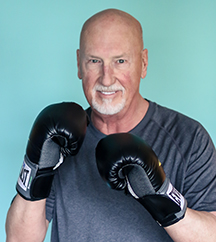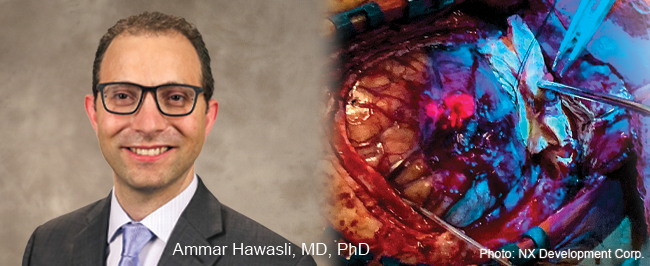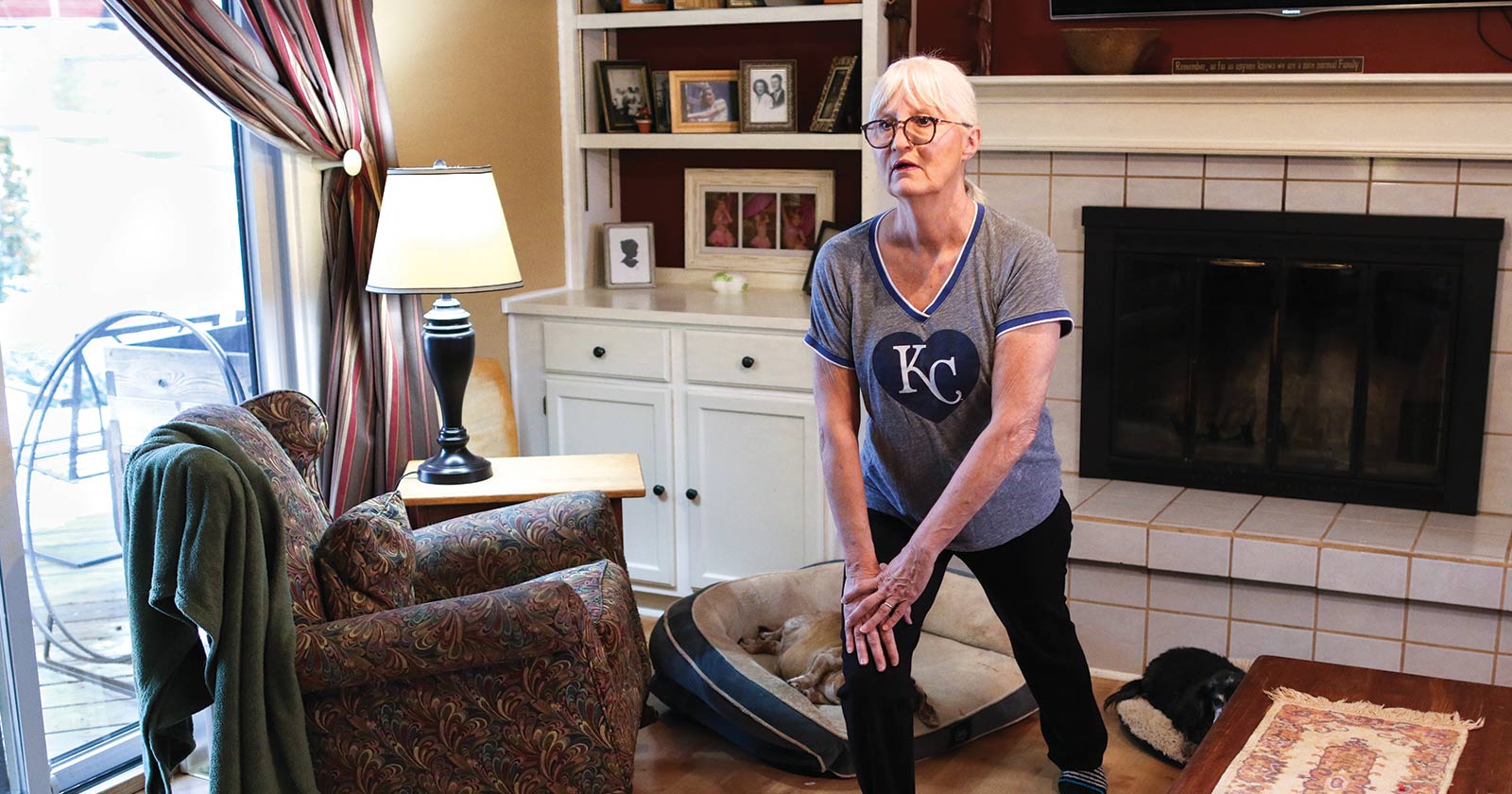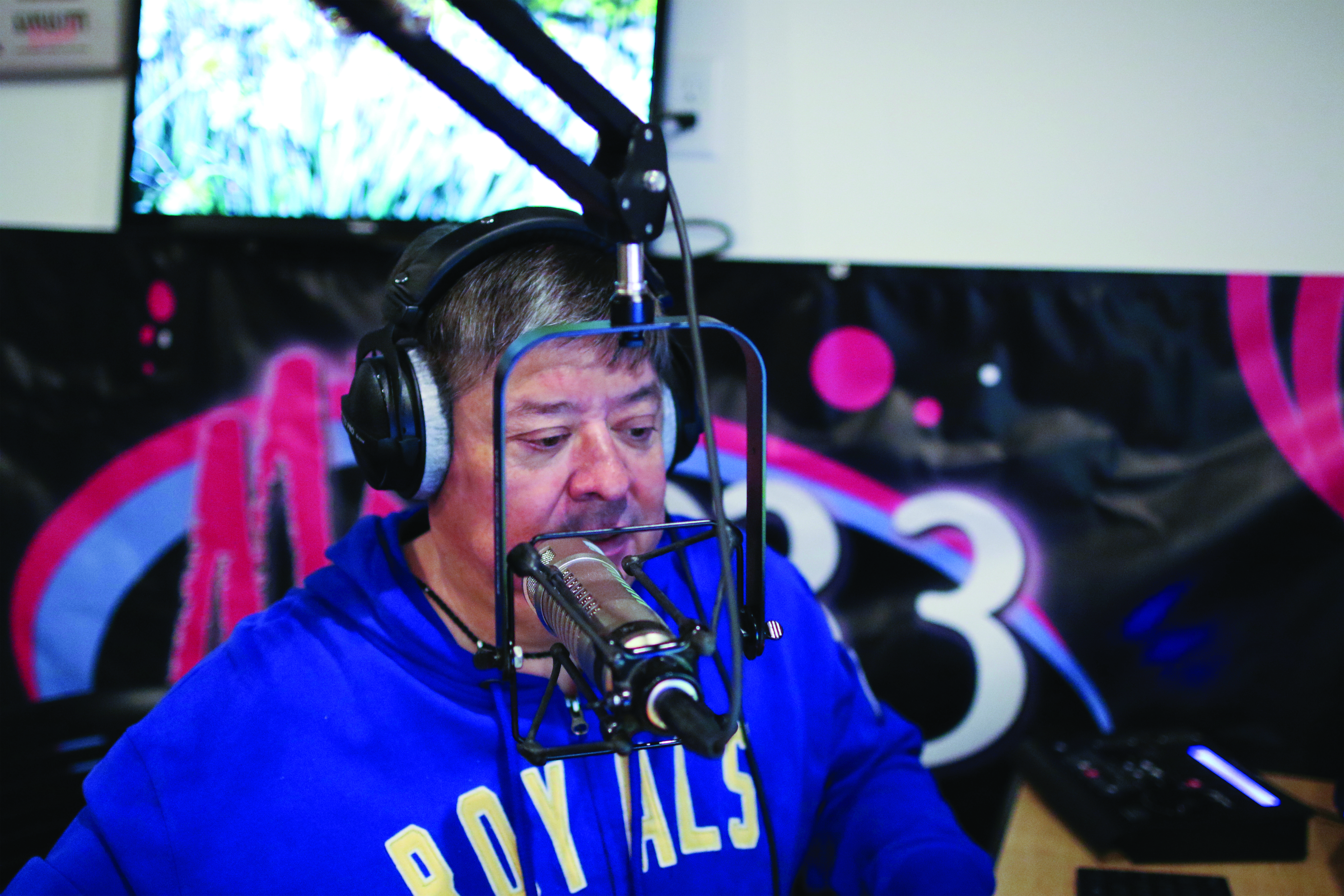In His Own Words
Watch a video about how Kent's facing his Parkinson’s challenge, and get a sneak peek of a Rock Steady Boxing session.
Parkinson's Get the One-Two Punch
Two Ways to Take on Parkinson's
Rock Steady Boxing
Explore RockSteadyBoxing.org, opens new tab. Then, call 816.691.5020 to schedule an assessment for NKCH’s program.
Lee Silverman Voice Treatment
NKCH has several LSVT Big® and LSVT Loud®, opens new tab certified physical, occupational and speech therapists on staff to help treat impaired voice and swallowing caused by Parkinson’s. Explore LSVTGlobal.com/Patient-Resources, opens new tab. Then, call 816.691.1795 to find out more about NKCH’s specific program.
Step Into the Ring
Rock Steady Boxing, opens new tab, a program created specifically for people with Parkinson’s, uses boxing techniques without the body contact. The class addresses many Parkinson’s symptoms. For example, warmup stretches help reduce joint and muscle stiffness, footwork improves balance, sparring (with instructors) strengthens eye-hand coordination, and punching speed
bags helps steady tremors.
North Kansas City Hospital is the only hospital in the Kansas City area that offers the Rock Steady Boxing program. Certified instructors assess each new participant to determine placement in one of four levels. Classes include 45-minutes of forced, intense exercise, which has been shown in medical studies to slow Parkinson’s progression.
“Anyone could qualify for Rock Steady, including people with severe symptoms,” Dr. Kosa said. “More severe patients who may require a walker or wheelchair can even participate. That’s where the Rock Steady team comes in. They perform an initial evaluation to determine eligibility and
the best level of participation.”
Be a Contender
Fighting depression and fear, Kent stepped outside his comfort zone and scheduled the mandatory assessment. “I didn’t have anything to lose at that point,” he said.
At his first class, he wondered if he’d make a mistake. “There were people with various levels of the disease doing exercises that I thought were pretty basic. I didn’t think I belonged there.” Still, he stayed. Three stations into the workout, he had to sit down to rest. Yet, he was hooked.
“We don’t commiserate with each other,” Kent quickly pointed out. “We all know why we’re there. It’s more that when we’re done with an exercise, we look at each other and know that we’ve put in some work. I forget I have Parkinson’s when I’m in class.”
Fight the Good Fight
 For Kent, Rock Steady has been a life-changing experience. “I’m not the same person physically or mentally that I was 10 months ago,” he said. “I walk more, and I walk faster. My sense of smell is back, and I’m stronger. I still shake, but it’s intermittent. I’m able to do just about anything.
For Kent, Rock Steady has been a life-changing experience. “I’m not the same person physically or mentally that I was 10 months ago,” he said. “I walk more, and I walk faster. My sense of smell is back, and I’m stronger. I still shake, but it’s intermittent. I’m able to do just about anything.
“The Rock Steady program has been a game changer for me,” he added. “I encourage anyone with Parkinson’s to give it a try and see if it works. My quality of life has improved 100%. My life is good.”
Reclusive, depressed, anxious and insecure. Those are the words Kent Galloway used to describe himself just 10 months ago. Parkinson’s disease, opens new tab had slowly robbed him of the ability to walk, think and move like he had before. A neurologist not affiliated with North Kansas City Hospital or Meritas Health, opens new tab initially diagnosed Kent and told him to get his affairs in order because the disease would progress quickly.
“I thought Parkinson’s was a death sentence,” Kent said.
Parkinson’s disease, a degenerative brain disorder, has no known cause or cure. It causes many symptoms, including unsteady walking, tremors and difficulty with body movements. Falls are common. The disease can also cause mood disturbances, cognitive dysfunction and memory loss. Some people, like Kent, lose their sense of smell.
“As the disease progressed, I became very insecure, afraid and anxious,” Kent recalled. “I removed myself from social situations. Basically, I was hiding in my house.”
A few months after his diagnosis, Kent met with his primary care doctor, Thomas K. LaBruzzo, DO, with Meritas Health North Kansas City, and shared how he was feeling. Dr. LaBruzzo referred him to Neurologist Steven C. Kosa, MD, with Meritas Health Neurology, for a second opinion.
“When I met Kent, he was anxious and very discouraged,” Dr. Kosa said. “I worked on his medications, and I recommended the hospital’s Rock Steady Boxing therapy program, opens new tab.” That’s when Kent realized he had hope in his corner.
Related Articles

March 8, 2020
3 Sneaky IBS Triggers
For people with irritable bowel syndrome, spring may spark a flare-up in symptoms

May 30, 2024
5 Nutrition Tips for a Healthier Lifestyle
Healthy eating and proper nutrition play a big part in maintaining good health. Here's how to improve your nutrition habits.

July 7, 2021
5-ALA Fluorescence Guides Neurosurgeons for More Complete Resections
Neurosurgeons Ammar Hawasli, MD, PhD, and Stephen Reintjes Jr., MD, with Meritas Health Neurosurgery, are now using a progressive treatment that allows for the more precise removal of malignant gliomas and glioblastomas.


